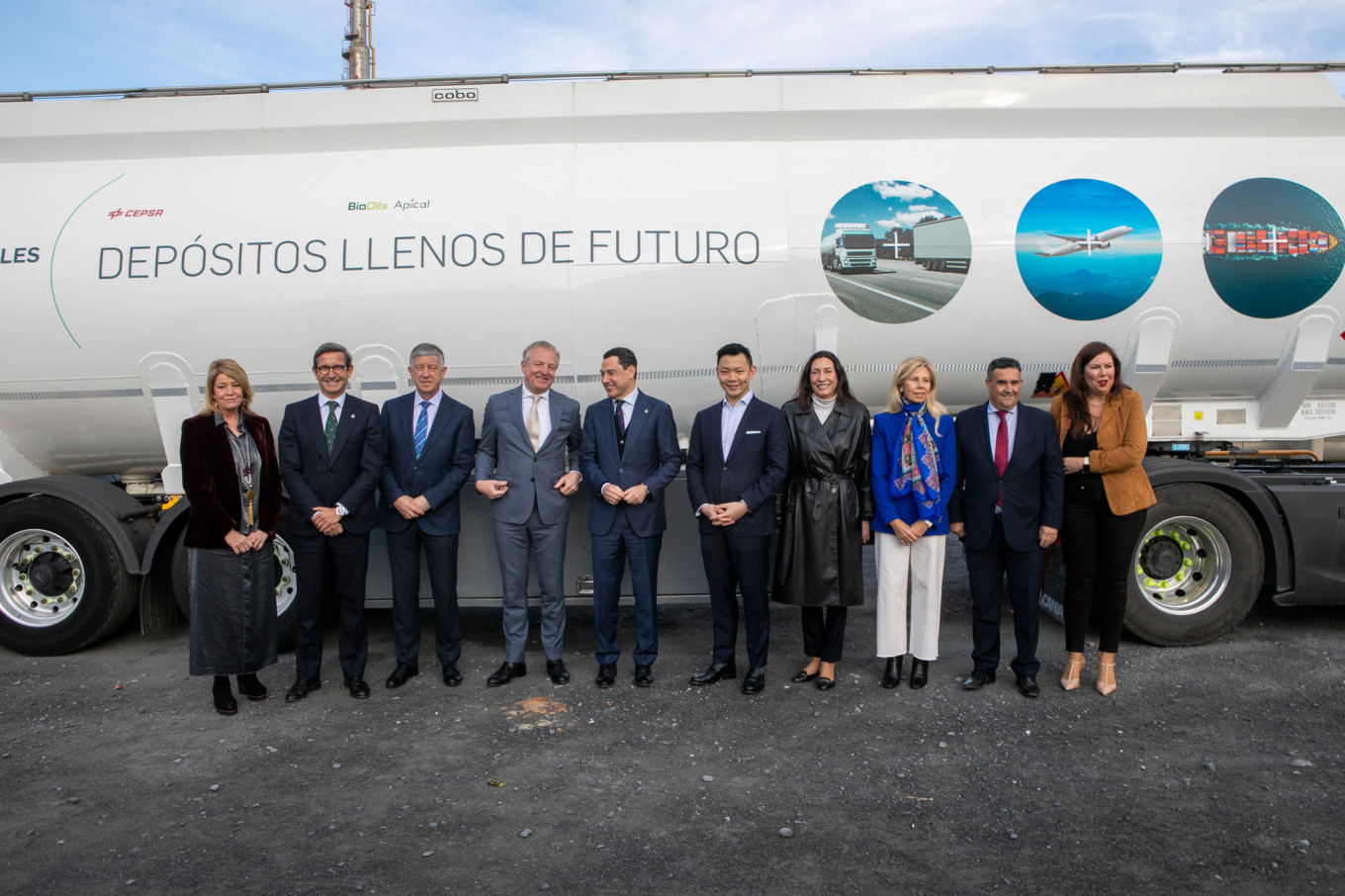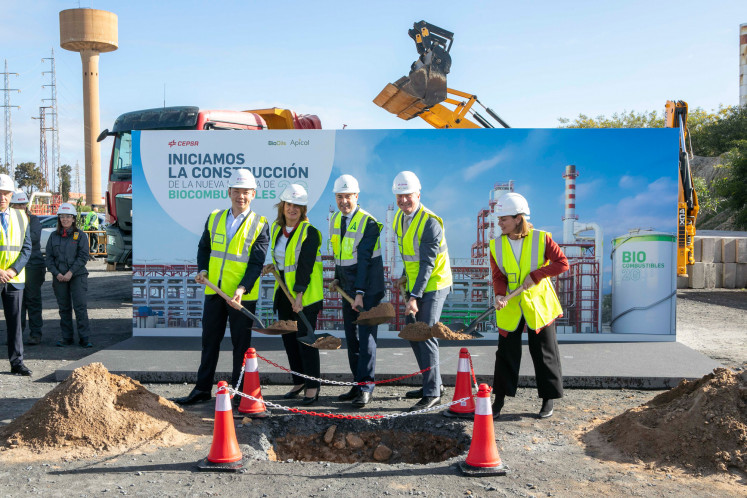Popular Reads
Top Results
Can't find what you're looking for?
View all search resultsPopular Reads
Top Results
Can't find what you're looking for?
View all search resultsApical-Cepsa joint venture starts construction of 2G biofuel plant
Change text size
Gift Premium Articles
to Anyone
A
pical, through its renewable energy subsidiary Bio-Oils, has commenced construction of southern Europe’s largest second-generation (2G) biofuel plant with its joint venture partner, Cepsa.
Apical, a leading vegetable oil processor, is a member of the Singapore-headquartered RGE group of companies.
The 1.2 billion euro facility, scheduled to start production in 2026, will flexibly produce 500,000 tonnes of sustainable aviation fuel (SAF) and renewable diesel, enough sustainable jet fuel to fly across the planet 1,300 times. The production capacity will also prevent the emission of 3 million tonnes of carbon dioxide per year, which is equivalent to keeping more than 600,000 standard passenger vehicles off the road annually.
Under a long-term agreement, Apical will supply 2G feedstock, organic waste such as agricultural waste and used cooking oils, to the new plant, addressing the key industry challenge of accessing raw materials for SAF production.
“While SAF is set to be the driving force for decarbonization of the aviation sector, access to sustainably available feedstock remains a challenge for many countries,” Apical’s executive director Pratheepan Karunagaran said.
“As we continue to expand Apical’s global footprint and capacities, the availability of waste and residue is set to grow in tandem, enabling value-added partnerships to be forged for our waste stream to drive the production and adoption of SAF.”
“Our 2G biofuel plant with Cepsa, which will be the largest aviation fuel-processing facility in southern Europe, is an excellent example of how industry players can come together to unlock the potential of SAF and scale up production and adoption,” he added.
Meanwhile, Cepsa CEO’s Maarten Wetselaar said: “We have broken ground on our second-generation biofuel plant, the first major milestone of our Positive Motion strategy.”
“This strategic project for Spain and Andalusia will make us a European benchmark in the field of green molecules and facilitate the immediate decarbonization of sectors that cannot run on electrons, like aviation. This is the start of a new chapter for Cepsa and this region that will generate quality employment and a new era of industrialization.”
This new plant, which will be built with the latest technology for the production of renewable fuels, will have a minimal environmental impact.
Thanks to the consumption of renewable hydrogen, 100 percent renewable electricity and different heat recovery and energy efficiency systems, this facility will emit 75 percent less CO2 than a traditional biofuel plant and is designed to achieve net-zero emissions in the medium term. Likewise, it will not consume fresh water, but only use reclaimed water.
Designed as a digitally native plant, the upcoming 2G biofuel plant in southern Europe incorporates the latest industry advancements in artificial intelligence, internet of things (IoT) and data analysis to maximize process efficiency and ensure the highest standards of safety and environmental protection.
The facility will double the current production capacity of Cepsa and Bio-Oils to 1 million tonnes per annum.
Similar partnerships in the region
Leveraging its ability to source high-quality 2G feedstock efficiently and sustainably, Apical is actively exploring similar partnerships with global oil majors to set up SAF production facilities in Singapore and Asia, where the SAF market is still in its infancy.
This will help to meet the anticipated rise in SAF demand as Singapore rolls out its plan for all outbound flights to use the green fuel from 2026.
“One factor hindering the uptake of SAF in the region is the price premium. However, Asia holds tremendous potential as it is home to six ASEAN countries, including Indonesia, Malaysia and Thailand, which collectively have the potential to support SAF production in the region with the required feedstock of waste and residue oil. Apical has a very strong regional presence, where we operate at the forefront of the bioeconomy, embracing a waste-to-value approach. We have the ready 2G feedstock to drive SAF production in the region, through partnerships,” Karunagaran explained.
“We welcome the recent announcement by Singapore, which requires all outbound flights to use SAF by 2026. As a regional air hub, Singapore is leading the way by driving the use of this green fuel and, at the same time, helping airlines to manage the higher costs associated with SAF.”
“It will use the levy paid by consumers to centrally purchase SAF for use by airlines. For Singapore to successfully achieve its SAF target from 1 percent in 2026 to 3-5 percent by 2030, it is important to drive deeper industry collaboration to optimize supply and demand, and scale up SAF adoption in an affordable manner, benefiting both consumers and airlines,” Karunagaran concluded.











